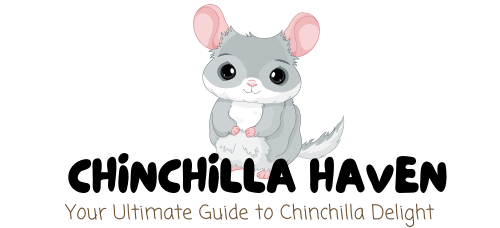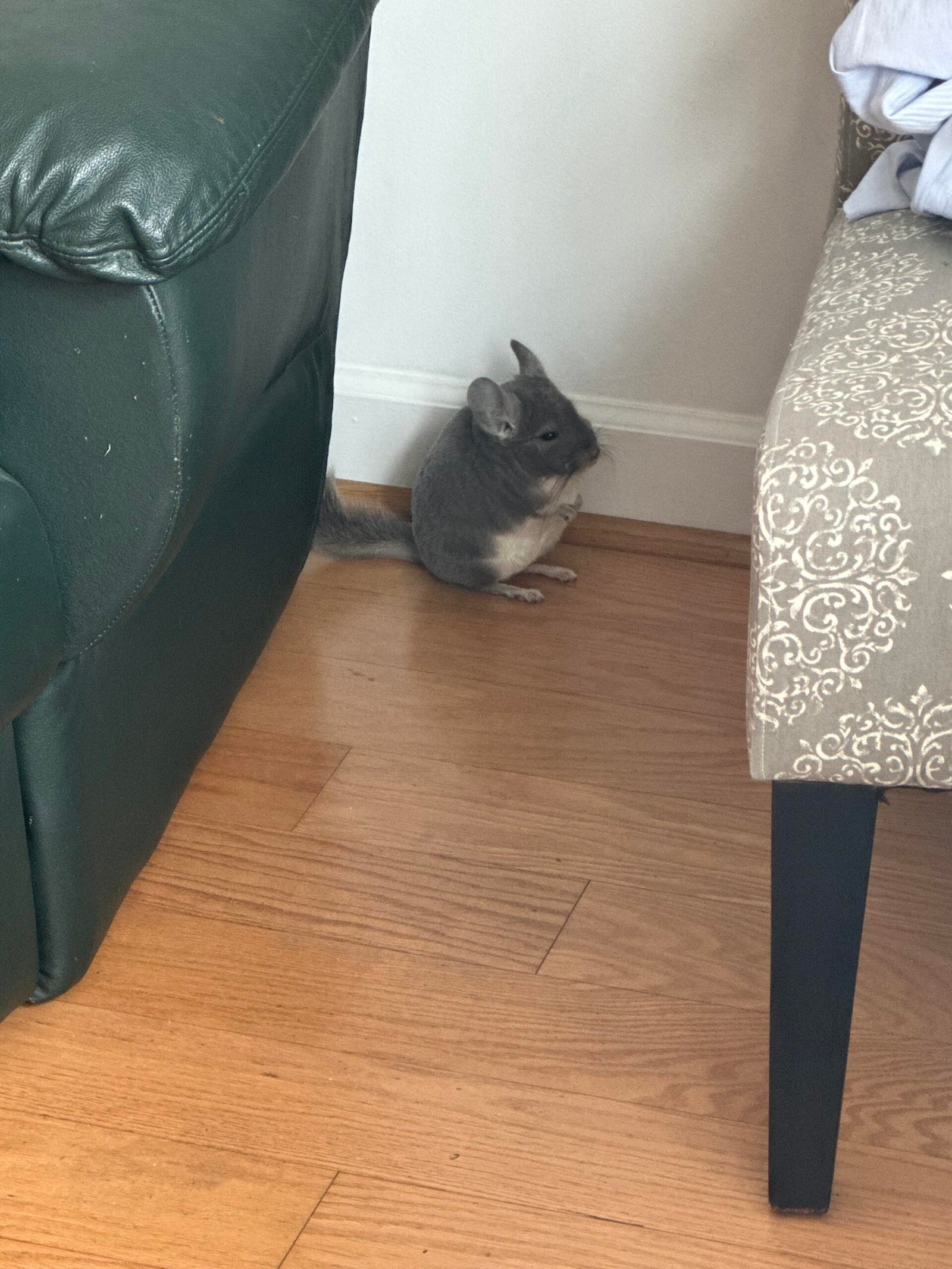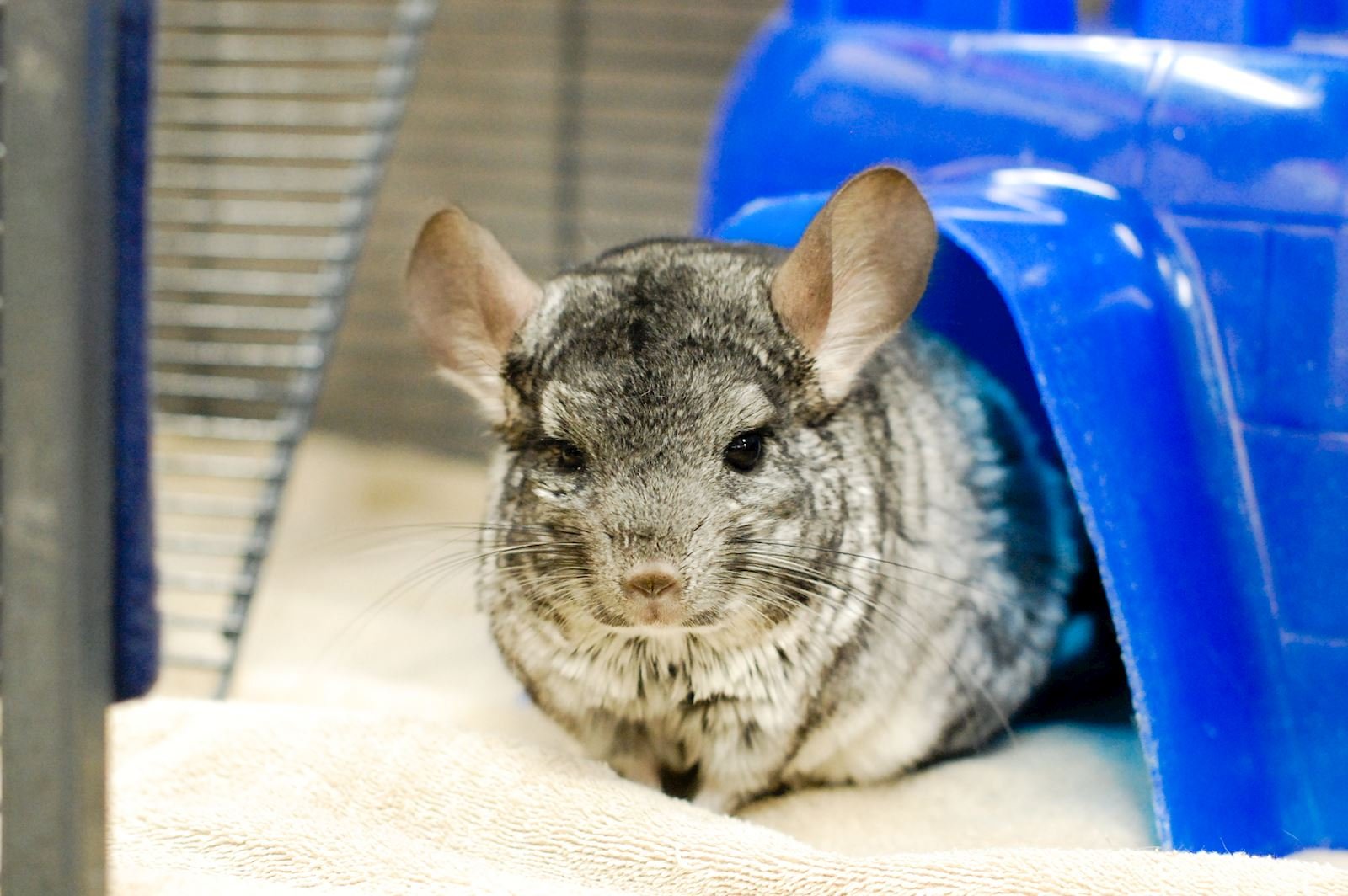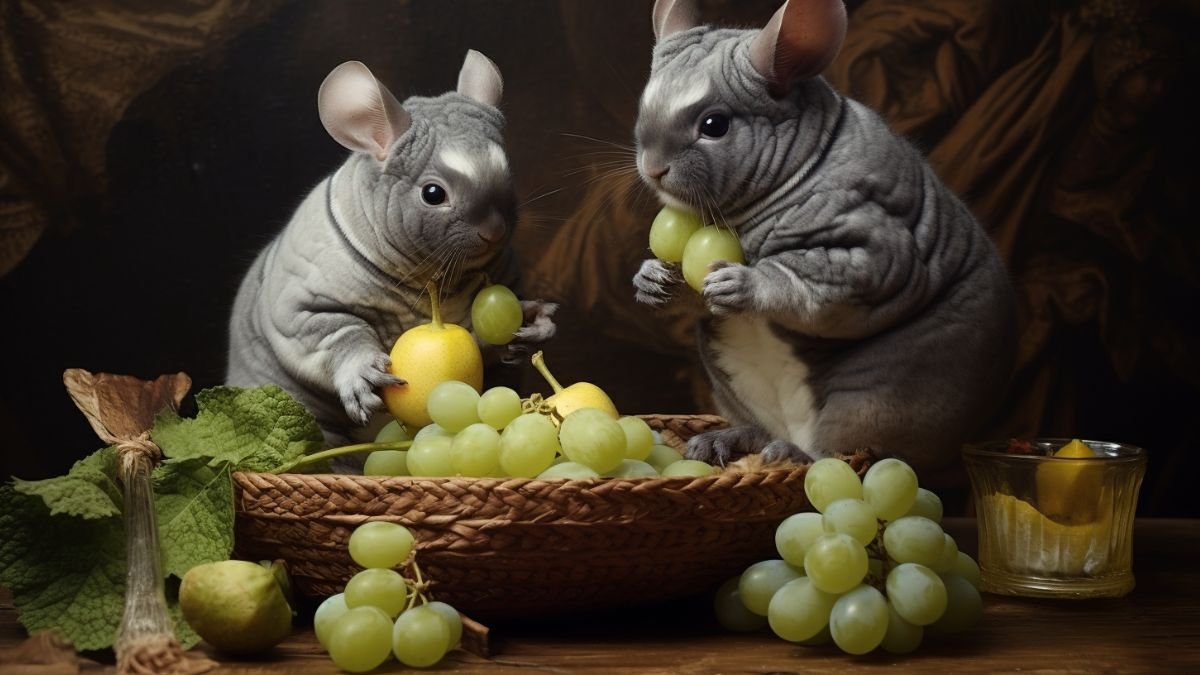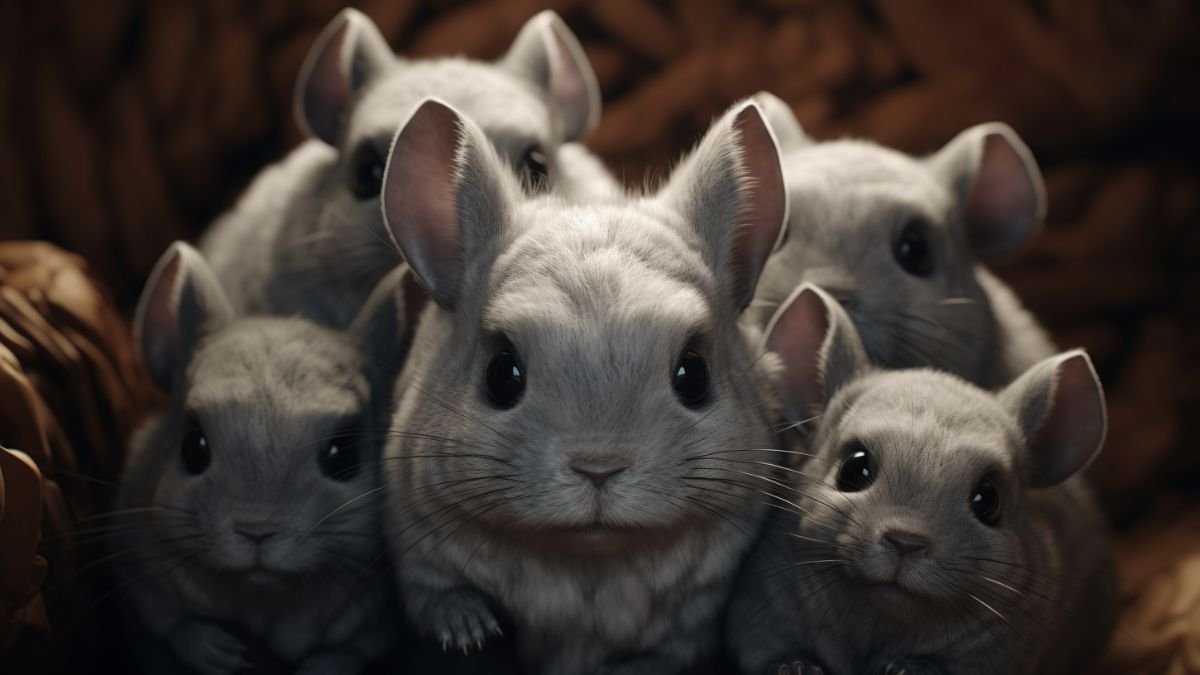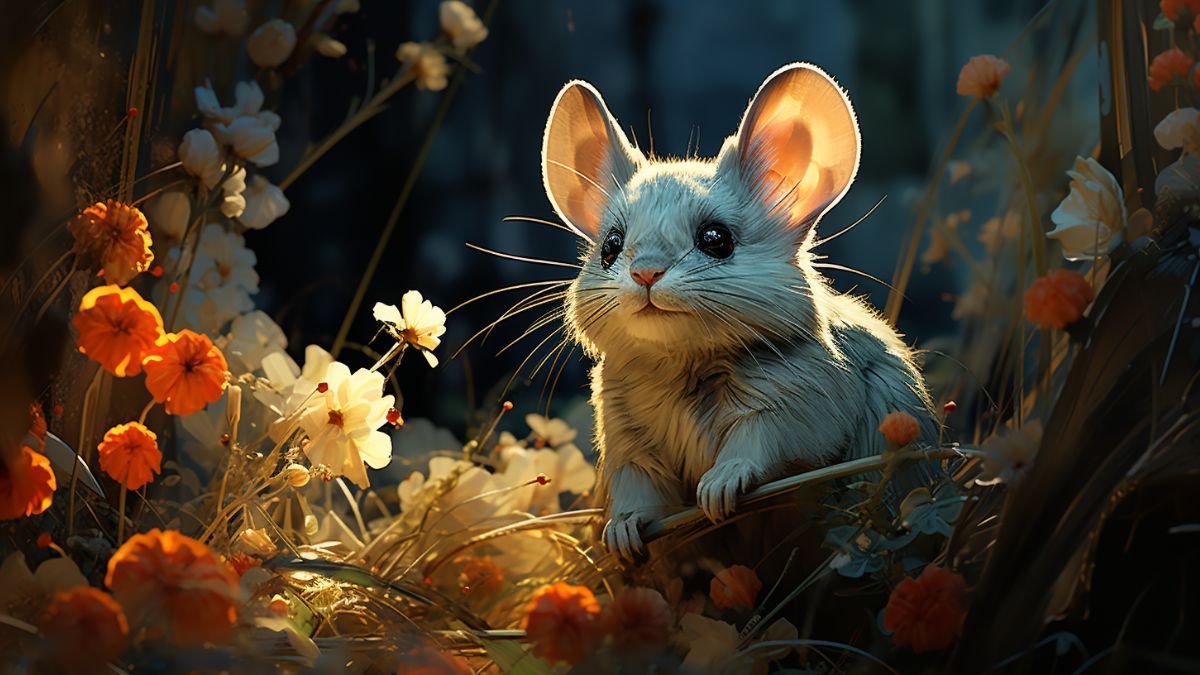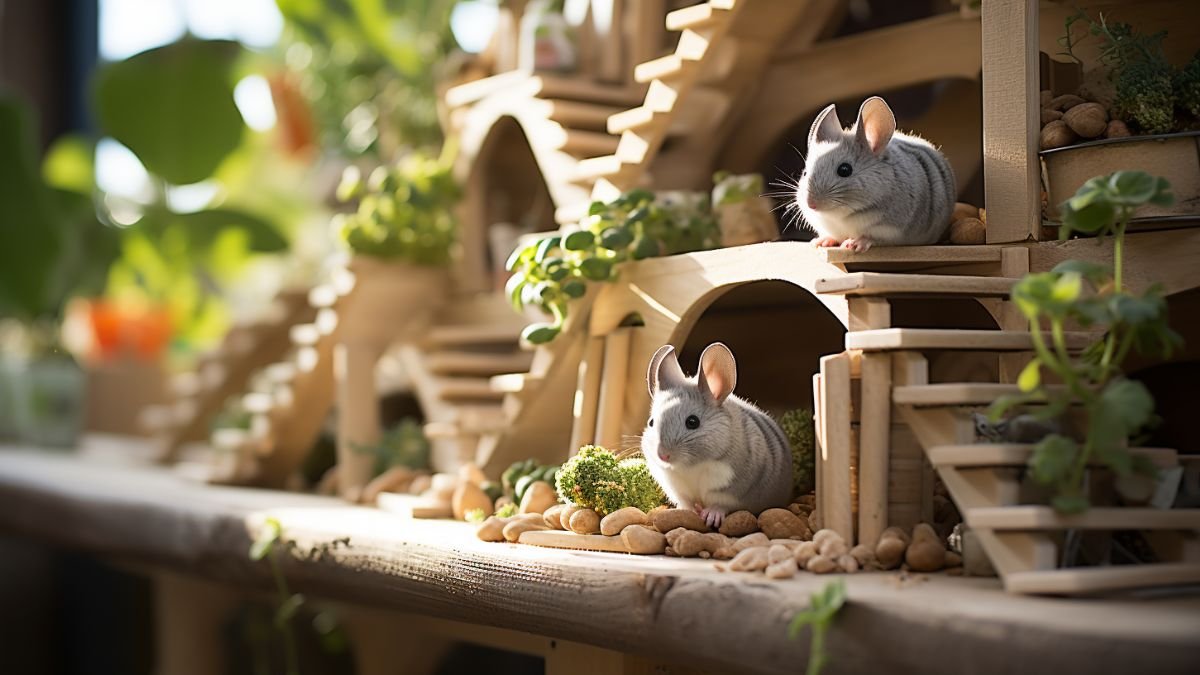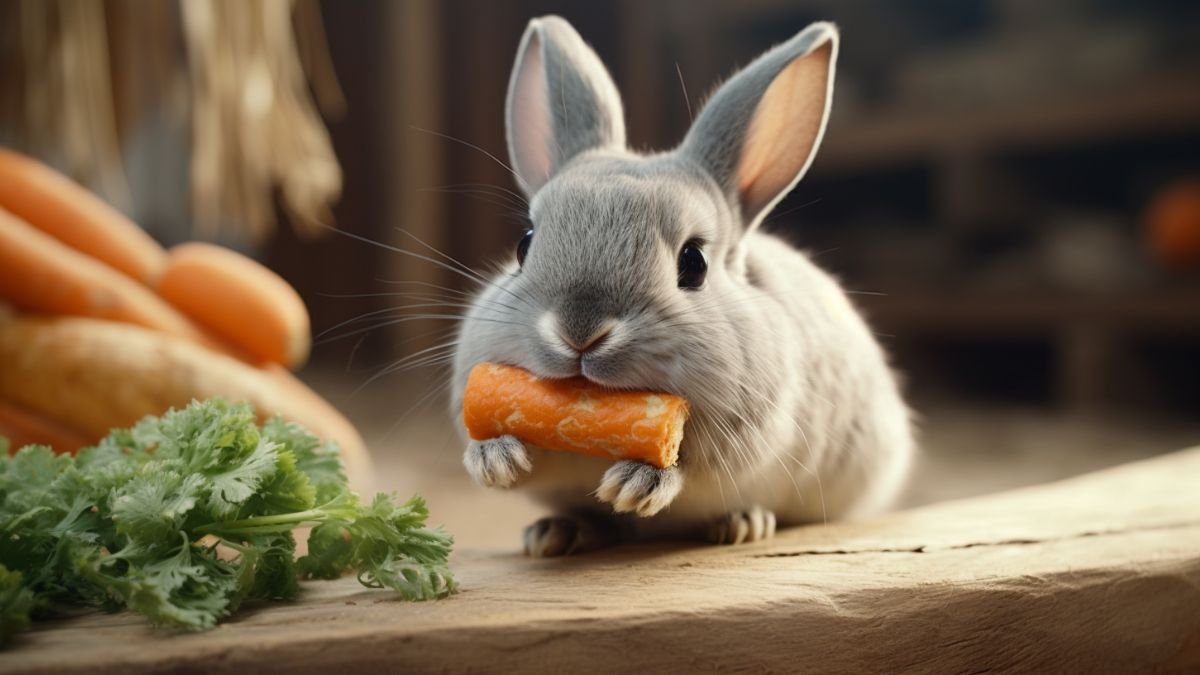
If you have a chinchilla, you probably want to give it tasty treats that are safe and healthy. You might be wondering, can chinchillas eat cucumber?
It’s natural to want to share fresh fruits and veggies with your furry friend, but not all foods are good for them. Keep reading to find out if cucumber can be a refreshing snack for your chinchilla or if it’s better to avoid it.
Your pet’s health depends on the right choices, and we’re here to help you make them easily.

Credit: www.chinchilla-scientia.com
Chinchilla Diet Basics
Chinchillas need a special diet to stay healthy and active. Their digestive system is very sensitive. A balanced diet helps avoid health problems and keeps their fur soft.
Chinchillas mainly eat hay, pellets, and a small number of treats. Fresh water should always be available. Avoid foods high in sugar and fat. These can harm their stomach and teeth.
Hay: The Main Food
Good quality hay is the foundation of a chinchilla’s diet. It provides fiber needed for digestion. Timothy hay is the best choice. It also helps wear down their teeth naturally.
Pellets: Daily Nutrition
Pellets give important vitamins and minerals. Choose pellets made just for chinchillas. Feed the right amount to prevent obesity. Too many pellets can cause weight gain.
Treats: Use Sparingly
Treats should be rare and healthy. Small pieces of dried rose hips or plain oats work well. Avoid sugary or wet fruits. These can cause diarrhea and upset stomachs.
Nutritional Needs Of Chinchillas
Chinchillas have special dietary needs. Their food must support strong bones and healthy fur. Proper nutrition helps them stay active and live longer.
They need a diet high in fiber but low in fat and sugar. Fiber keeps their digestive system working well. Too much sugar or fat can cause illness.
Nutrient Requirements For Chinchillas
Chinchillas need fiber from hay and pellets. They also require small amounts of protein and fat. Vitamins and minerals help their body grow and stay healthy.
Role Of Water In Chinchilla Diet
Fresh water is very important. Chinchillas drink often to stay hydrated. Always provide clean water in their cage.
Foods To Avoid For Chinchillas
Avoid sugary fruits, nuts, and seeds. These can upset their stomach. Some vegetables may cause gas or diarrhea. Stick to safe, chinchilla-friendly foods only.
Cucumber Composition
Cucumber is mostly water, with small amounts of vitamins and minerals. Chinchillas can eat cucumber in small amounts because it is low in calories and safe for them. Too much water from cucumber may upset their stomach.
Cucumber Water Content
Cucumbers are mostly water, about 95%. This high water level helps keep chinchillas hydrated. Water is important for their digestion and overall health.
Vitamins In Cucumber
Cucumbers contain vitamins like vitamin K and vitamin C. These vitamins support the chinchilla’s immune system and bone health. The amounts are small but beneficial.
Minerals Found In Cucumber
Cucumbers have minerals such as potassium and magnesium. These minerals help with muscle function and energy. They are gentle on a chinchilla’s digestive system.
Fiber Content In Cucumber
Cucumbers have a small amount of fiber. Fiber helps chinchillas with digestion and prevents constipation. However, cucumbers are not a major fiber source.
Natural Sugars And Carbohydrates
Cucumbers contain low natural sugars and carbohydrates. Chinchillas need low sugar foods to avoid health problems. Cucumbers fit well within these dietary needs.
Health Benefits Of Cucumber For Chinchillas
Cucumber is a fresh and crunchy treat for chinchillas. It contains many nutrients that support their health. This vegetable can help keep chinchillas hydrated. It also provides some vitamins and minerals in small amounts.
Feeding cucumber in moderation can add variety to a chinchilla’s diet. It offers a low-calorie snack that chinchillas enjoy. Understanding the health benefits helps pet owners choose safe treats.
Hydration Support
Cucumbers have high water content, about 95%. This helps chinchillas stay hydrated. Proper hydration is important for their digestion and overall health. Cucumber can be a tasty way to increase water intake.
Low In Calories
Cucumbers have very few calories. This makes them a good snack for chinchillas. Low-calorie foods help maintain a healthy weight. Overfeeding high-calorie treats can cause obesity and health problems.
Rich In Fiber
Cucumber skin contains fiber, which aids digestion. Fiber helps keep chinchillas’ gut healthy. It supports regular bowel movements and prevents digestive issues. Fiber is an important part of their natural diet.
Contains Vitamins And Minerals
Cucumbers provide small amounts of vitamins like vitamin C and K. They also contain minerals such as potassium and magnesium. These nutrients support overall body functions. Even small amounts can benefit chinchillas over time.
Potential Risks Of Feeding Cucumber
Feeding cucumbers to chinchillas might seem safe at first. Yet, there are risks to consider before offering this vegetable to your pet. Understanding these risks helps protect your chinchilla’s health and happiness.
Cucumbers contain a lot of water. This high water content can upset a chinchilla’s sensitive stomach. Too much moisture may cause diarrhea or other digestive problems. Chinchillas need dry food to maintain healthy digestion.
Another concern is the low nutrient value of cucumbers. They provide little energy or essential vitamins for chinchillas. Feeding cucumbers often could reduce their appetite for more nutritious foods. This can lead to poor health over time.
Chinchillas have delicate teeth that require constant chewing. Cucumbers are soft and do not help wear down their teeth. Without proper chewing material, teeth can grow too long and cause pain or eating issues.
Risk Of Digestive Upset
Chinchillas have sensitive digestive systems. Cucumbers’ high water content may cause loose stools. Diarrhea can quickly lead to dehydration and weakness.
Low Nutritional Benefit
Cucumbers lack important nutrients chinchillas need. Feeding too much cucumber might reduce their intake of balanced food. This can weaken their immune system and energy levels.
Impact On Dental Health
Soft cucumbers do not help grind chinchilla teeth. Teeth need hard materials to stay healthy. Without this, chinchillas may suffer from dental pain or infections.
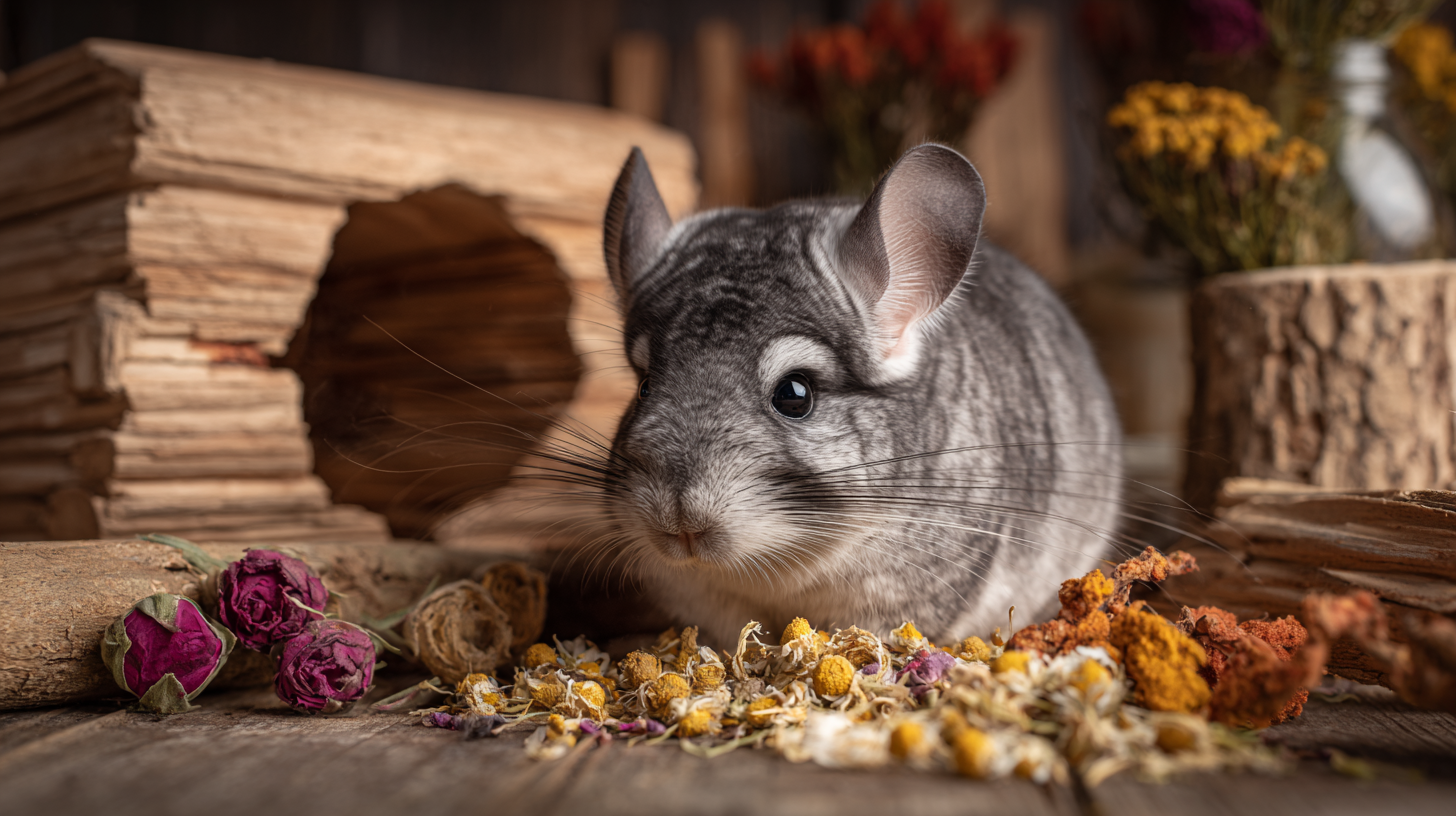
Credit: moonypaw.com
Safe Serving Size And Frequency
Chinchillas can eat cucumber, but only small amounts. Limit servings to a few times a week to avoid stomach problems. Always offer fresh, clean cucumber slices.
Recommended Serving Size For Chinchillas
Chinchillas should eat cucumber in very small amounts. A thin slice or two is enough. This small serving helps avoid stomach problems. Large amounts can cause diarrhea or upset their digestion.
Keep servings under one teaspoon per treat. This size keeps cucumber safe and healthy for your pet. It also helps keep their diet balanced and varied.
How Often To Feed Cucumber To Chinchillas
Offer cucumber as a treat only once or twice a week. Frequent feeding can harm their sensitive digestive system. Chinchillas need mostly hay and pellets for daily meals.
Use cucumber sparingly to prevent nutrient imbalances. Treats should never replace their main diet. Consistent small treats keep your chinchilla happy and healthy.
Alternative Safe Treat Options
Chinchillas enjoy treats like dried rose hips or small pieces of apple. Fresh vegetables, such as cucumber, should be given carefully. Safe treats help keep chinchillas healthy and happy.
Fresh Herbs
Fresh herbs like parsley, cilantro, and basil make great treats for chinchillas. They offer a mild taste and are safe in small amounts. Herbs add variety and nutrients to your pet’s diet. Always wash herbs thoroughly before feeding.
Dried Rose Hips
Dried rose hips provide a tasty and safe snack option. They contain vitamin C, which supports chinchilla health. Use only small pieces to avoid choking. Make sure the rose hips are free from pesticides.
Timothy Hay Cubes
Timothy hay cubes are crunchy and healthy treats. Chinchillas love chewing on them, which helps keep their teeth strong. These cubes are easy to store and portion out. Avoid hay with added flavors or sweeteners.
Small Pieces Of Apple
Small apple pieces offer a sweet treat that chinchillas enjoy. Remove seeds and core before giving apples. Feed only a tiny amount to prevent digestive issues. Apples provide vitamins but also natural sugar.
Carrot Slices
Thin carrot slices are crunchy and nutritious treats. They supply vitamins and fiber for your chinchilla’s diet. Cut carrots into small pieces to avoid choking risks. Feed in moderation to keep sugar intake low.
Signs Of Digestive Issues To Watch
Chinchillas have very sensitive stomachs. Feeding them the wrong food can cause digestive problems. It is important to watch for signs that show your pet is not feeling well inside.
Knowing these signs helps you act fast. Quick action can prevent serious health issues. Watch your chinchilla closely after giving cucumber or any new food.
Changes In Droppings
Healthy chinchilla droppings are firm and oval-shaped. Soft, watery, or very small droppings can mean trouble. Diarrhea can cause dehydration and needs attention.
Loss Of Appetite
A chinchilla that refuses food might be sick. Loss of appetite is a clear sign of digestive upset. Monitor their eating habits every day.
Abdominal Swelling Or Pain
Swelling or a hard belly shows discomfort. Chinchillas may hide pain but act restless or quiet. Gently check their stomach if you notice changes.
Excessive Drooling Or Chewing
Drooling or chewing more than usual can indicate nausea. It might also mean mouth or digestive pain. Observe your pet’s behavior carefully.
Lethargy And Weakness
Low energy and weakness are serious signs. Digestive problems can affect overall health quickly. Keep your chinchilla active and alert as usual.
Tips For Introducing New Treats
Introducing new treats to chinchillas needs care and patience. Sudden changes can upset their sensitive stomachs. Start slowly to see how they react. Watch for any signs of discomfort or refusal.
New foods should be a small part of their diet. Chinchillas mostly eat hay and pellets. Treats like cucumber must be given carefully and in moderation.
Start With Small Amounts
Give only a tiny piece of cucumber at first. This helps your chinchilla get used to the new taste. Small amounts lower the risk of digestive problems. Wait a day or two before offering more.
Observe Your Chinchilla’s Reaction
Check if your pet eats the cucumber happily. Look for signs of upset stomach or diarrhea. If your chinchilla seems unwell, stop giving cucumber immediately. Only continue if your pet shows no problems.
Offer Treats At The Right Time
Give new treats when your chinchilla is calm and hungry. Avoid offering food right after a big meal. This increases the chance your pet will try the new treat.
Keep Treats Rare
Treats like cucumber should not replace regular food. Use them once or twice a week at most. This keeps your chinchilla healthy and happy.
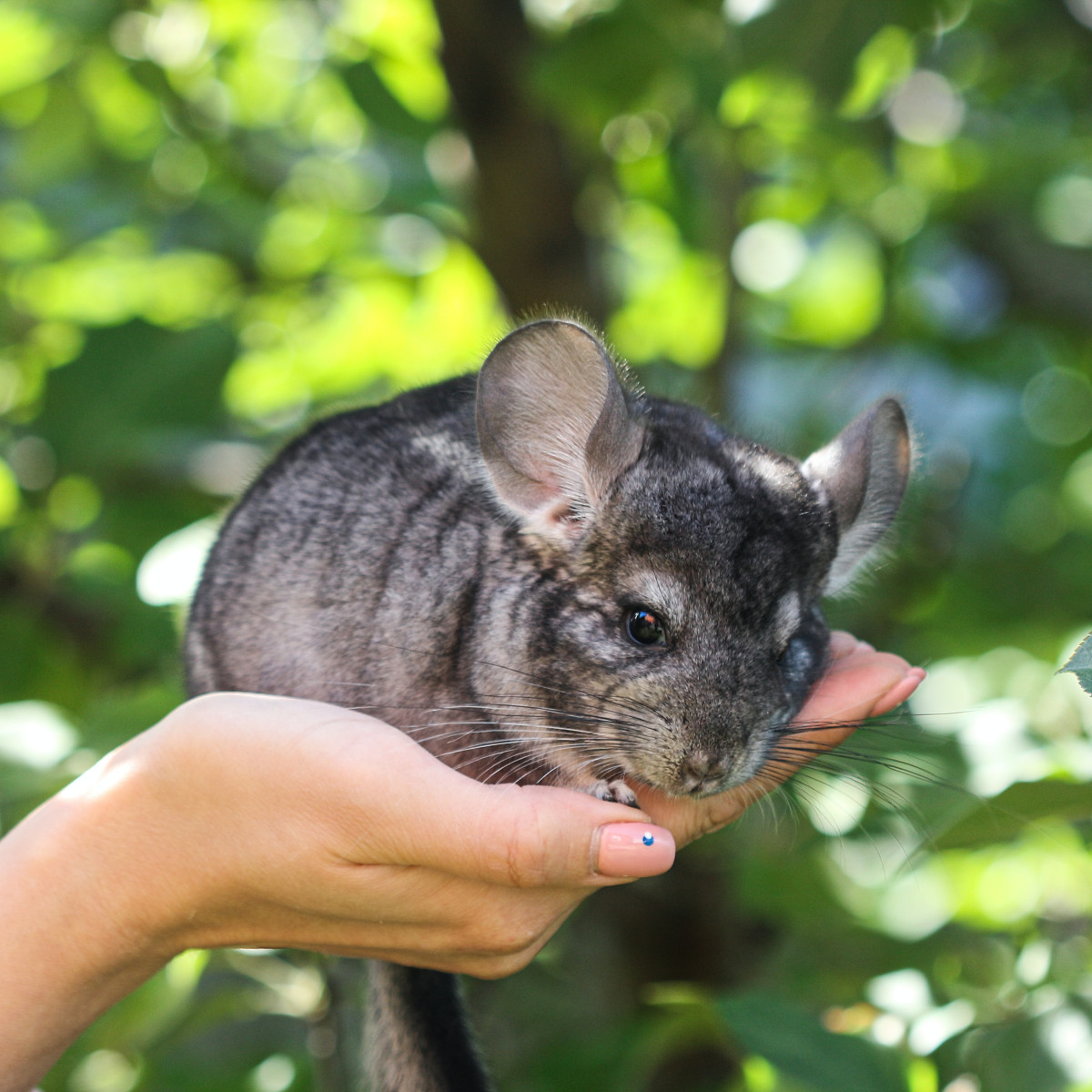
Credit: pethelpful.com
Frequently Asked Questions
Can Chinchillas Safely Eat Cucumber?
Yes, chinchillas can eat cucumber in small amounts as an occasional treat.
How Much Cucumber Can Chinchillas Eat Daily?
Limit cucumber to a small slice once or twice a week only.
Does Cucumber Provide Any Health Benefits For Chinchillas?
Cucumber offers hydration and some vitamins but lacks fiber needed for chinchillas.
Can Cucumber Cause Digestive Problems In Chinchillas?
Too much cucumber may cause diarrhea or stomach upset in chinchillas.
Should Cucumber Skin Be Removed Before Feeding Chinchillas?
It’s better to peel cucumber to avoid pesticides and tough skin issues.
Is Cucumber A Good Alternative To Regular Chinchilla Food?
No, cucumber should never replace hay or pellets in a chinchilla’s diet.
How To Introduce Cucumber To A Chinchilla’s Diet?
Start with a tiny piece and watch for any signs of discomfort.
Can Cucumber Seeds Harm Chinchillas If Ingested?
Remove seeds to prevent choking or digestive problems in chinchillas.
Conclusion
Chinchillas can eat cucumber, but only in small amounts. Too much cucumber may upset their stomach. Always wash the cucumber well before feeding. Remove seeds and peel for safety. Offer cucumber as a rare treat, not daily food. Fresh water and hay remain their main diet.
Watch your pet after feeding new foods. Healthy chinchillas enjoy variety but need balance. Feeding cucumber carefully helps keep your chinchilla happy.
